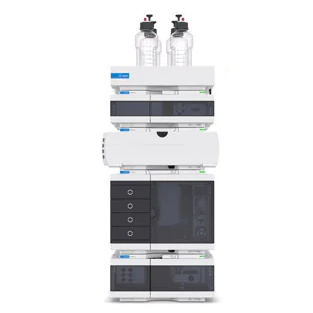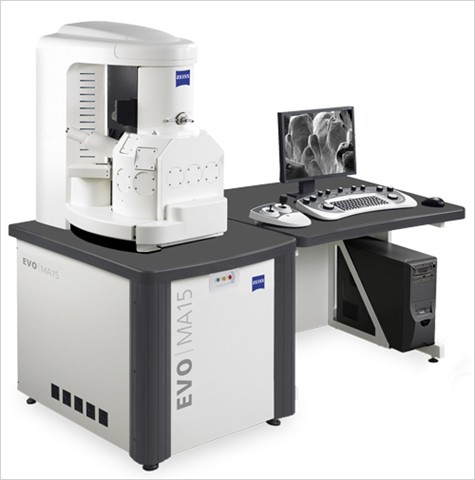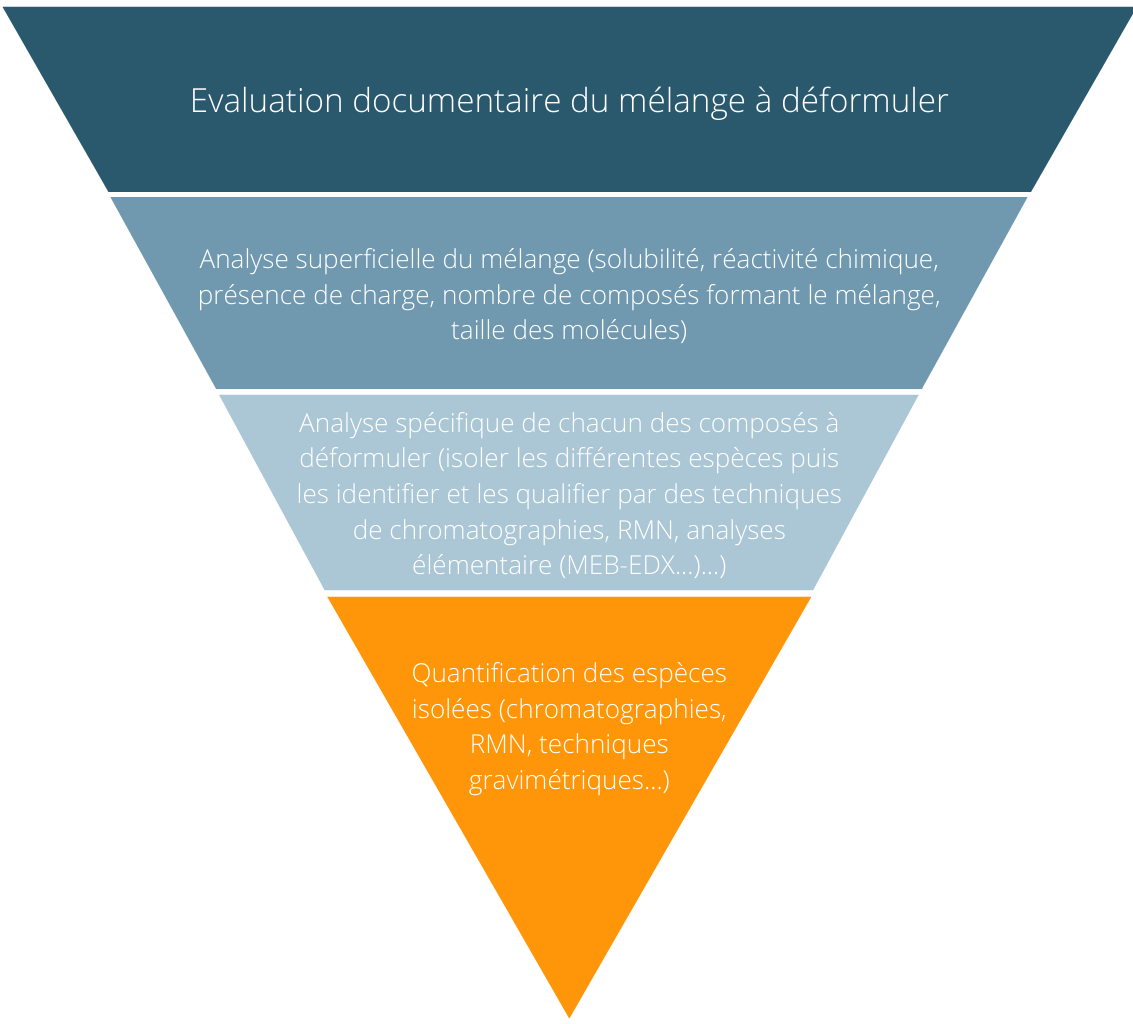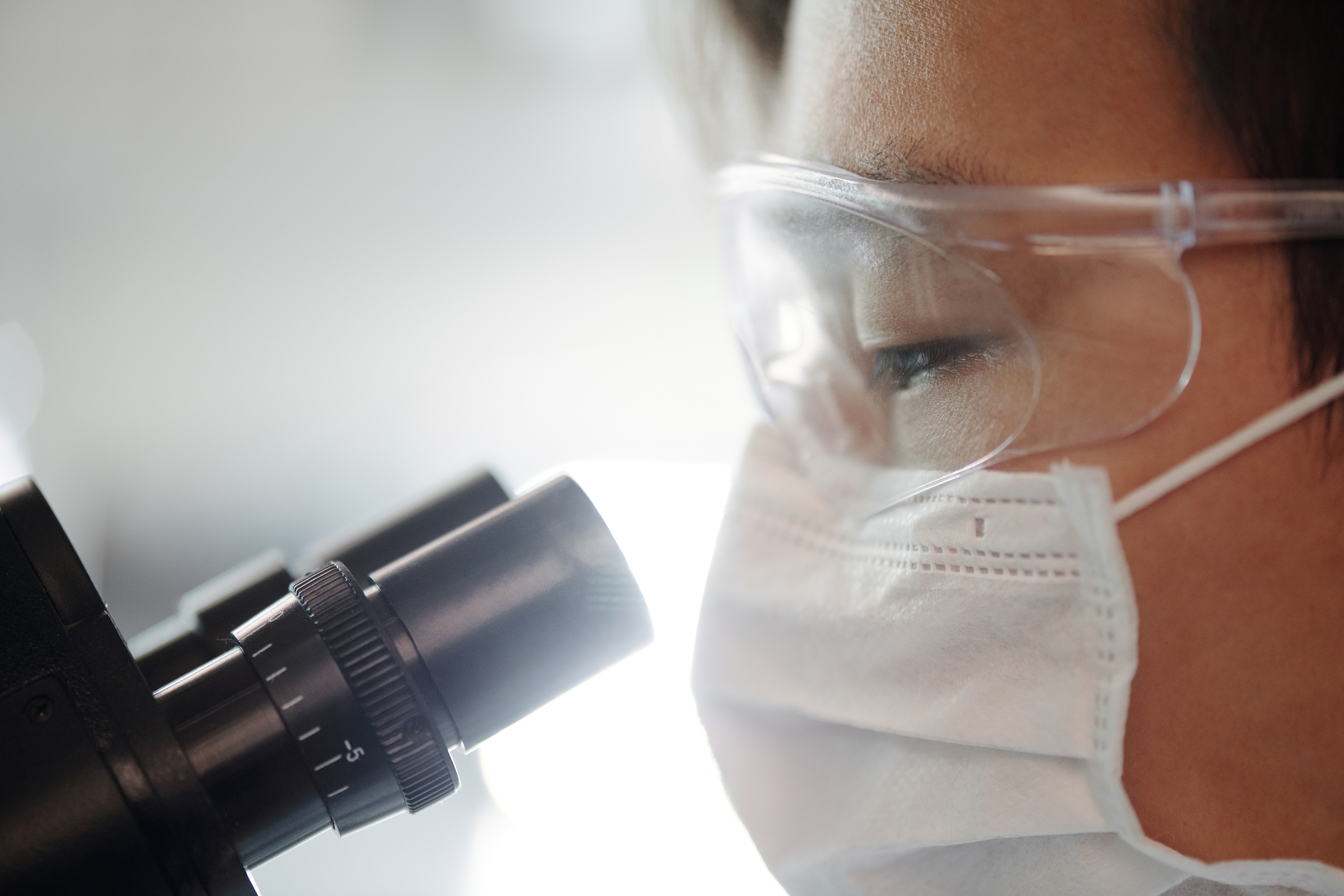The chemical reverse engineering of polymers consists in the study and analysis of a formulation or a mixture to obtain its composition. It allows to determine the nature and the quantity of the raw materials forming a product. Reverse engineering is a real competitive advantage to improve or develop a new product.
Ambre Issart, expert at PolymerExpert guides you step by step through the reverse engineering process and the benefits of this service.
Reverse engineering of mixtures is a complex exercise since it involves separating several components so that they can be formally identified and quantified. For example, for a paint Reverse engineering, it is necessary to separate more than fifteen components in order to better understand its physicochemical properties.
Reverse engineering can be performed for any industrial sector and for a multitude of products:
- Resins
- Adhesives
- Composites
- Packaging
- Inks
- Coatings
- Pharmaceutical
- Medical
- Cosmetics
- Pharmaceuticals
- Plastics
- Silicone
- Rubber
- Active ingredients
- Powder
- Ceramic
In order to carry out a Reverse engineering, PolymerExpert relies on a team of experts specialized in polymer analysis and a laboratory equipped with a complete analytical park:
- Steric Exclusion Chromatography (CES or GPC), various solvent and column sizes available
- FTIR (Fourier Transform Infrared Spectroscopy)
- 1H, 13C NMR (Nuclear Magnetic Resonance)
- HPLC (High Performance Liquid Chromatography)
- GC, and GC HeadSpace (Gas Chromatography), GC-MS
- Laser particle size analysis of solids or emulsions: population number and polydispersity index
- Karl Fisher (solid and liquid)
- Automatic batcher
- TGA (Thermogravimetry)
- DSC (differential scanning calorimetry)
- DMA (Dynamic Mechanical Analysis)
- Dynamometer
- Refractometer
- Goniometer
- Osmometer
- Optical microscope
- Scanning electron microscope coupled to elemental analysis (SEM-EDX)
- Binocular
- UV-Visible spectrometer
- Halogen desiccator


For more than 22 years, PolymerExpert has been involved in the field of analysis and characterization. If Reverse engineering is a valuable tool to understand polymer materials, it is also an advantage in the innovation and optimization of your products/processes. Find out why we use Reverse engineering of polymer materials. This experience on several hundreds of different materials allows PolymerExpert to bring the desired solution to its partners.
Who hasn’t dreamed of being able to unlock the secrets of a recipe in order to reproduce or improve it? Reverse engineering allows you to make the material speak, to free your creativity and to reach your objectives.
The advantage of this reverse engineering is first of all to know better the studied product. This will of knowledge of the matter can be led in several optics:
- Competitive intelligence
- Quality approach (quality control of a product from a supplier allowing a traceability, a conformity analysis for example)
- Understanding/anticipation of various phenomena (premature aging, product reactivity, structure-property relationship…).
- Raw material substitution (shortage, or strategic change)
- Product optimization
- Obtaining data for regulatory compliance
- Protection of intellectual property (check for patent infringement, unfair competition.)
The testing requirements will depend on the final objective. Therefore, it is important to define the expectations beforehand. PolymerExpert provides a complete testing and formulation service to a wide range of industries and companies. Discover the Reverse engineering protocol in a third part.
The process followed during a Reverse engeineering study is that of an inverted pyramid.
First, a global analysis of the product is carried out through a documentary study of the technical data sheets, safety data sheets, patents and other available documents. This first step allows us to determine the scope of the study and the composition of the product.
A first superficial study of the product follows via non-specific analyses. The solubility of the mixture will first be studied, the presence of solvents, a possible reactivity or the presence of fillers. Other “global” analyses can be carried out in order to obtain data on the nature of the mixture (by Fourier Transform Infrared – FTIR -, or by NMR of the proton for example), on the number of compounds to be separated (via a thermogravimetric analysis – TGA) as well as the size of the molecules in presence (by CES, or possibly by granulometry)
The next step is more complex since it is about separating the compounds of interest. For this, several techniques are possible, such as the use of chromatography (possibly preparative chromatography) with sample collection, or by chemical reactions (selective precipitation, selective polymerization…). The collected samples can then be identified (1H – 13C – 2D NMR, FTIR, SEM-EDX in the case of inorganic elements…) and quantified.

Example of realization: Reverse engeineering of epoxy resins, formo-phenolic resins, paints, shampoos, medical devices, etc.
Few chemical Reverse engeineering laboratories have all the necessary tools to deconstruct complex product matrices and extract major and minor constituents in order to provide conclusive and accurate results.
Thanks to our expertise and our analytical park, PolymerExpert allows you to know your samples from the macroscopic to the nanometric scale.
Finally, once the Reverse engeineering of your components has been performed, many possibilities are available to you to pursue your project. Discover how to exploit the results of Reverse engeineering in a last part.
PolymerExpert does not stop at Reverse engeineering. Most of the cases treated at PolymerExpert are followed by a second study at the customer’s request.
This second study, depending on the need, can consist of a reformulation (following the data collected thanks to Reverse engeineering) or the optimization of the formula by replacing certain compounds for example. Other expertises can also be implemented such as accelerated aging tests on formulated and/or Reverse engeineered products.
More generally, whatever the expertise you wish to carry out at PolymerExpert, a complete R&D support is set up in order to meet the specific needs of each project.

